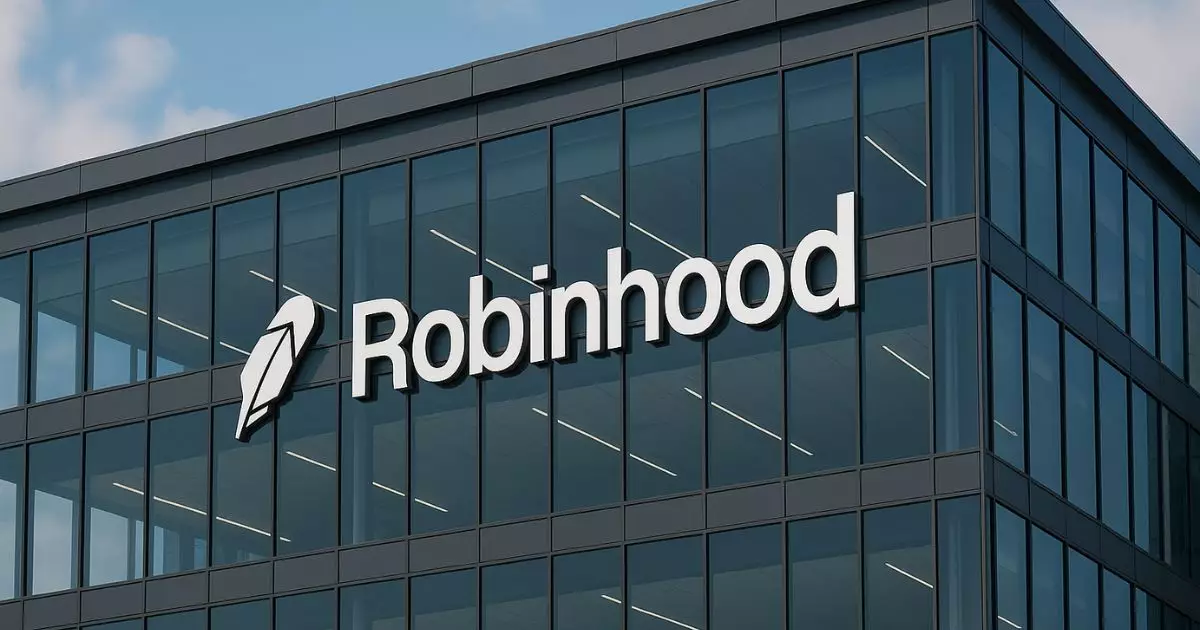The financial landscape is undergoing a significant transformation as technology revolutionizes how we perceive ownership and transactions. Tokenization—a process that involves converting real-world assets (RWAs) into digital tokens placed on a blockchain—holds the promise of unlocking an astonishing $30 trillion market. This potential has not gone unnoticed, particularly by companies like Robinhood, which recently submitted an exhaustive proposal to the US Securities and Exchange Commission (SEC). Their vision? Establishing a comprehensive framework that heralds a new era for asset regulation in the digital age.
For too long, the tokenization of RWAs has been hindered by fragmented regulatory environments and the chaotic approach to innovation marked by isolated pilot programs. The consequences of these limitations are glaring; while private companies experiment with tokenized assets, they lack the cohesive legal structure to support broader institutional adoption effectively. This is where Robinhood’s initiative shines—a much-needed call for a unified national framework that can marry blockchain technologies with existing securities regulations.
A Unified National Framework
Imagine a world where digital tokens representing traditional assets like equities, bonds, and real estate are recognized and treated on par with their physical counterparts. Robinhood’s proposal outlines a meticulous approach to create a robust legal infrastructure for this paradigm shift. It envisions a marketplace where broker-dealers can issue and trade tokenized securities, all under a standardized compliance model. The vision is clear: eliminate the need for disparate systems and streamline processes, thereby ushering in an era of efficiency and accessibility.
What makes this initiative particularly compelling is the introduction of the Real World Asset Exchange (RRE), an innovative platform designed to facilitate off-chain trade matching coupled with on-chain settlement. Through the integration of modern compliance tools such as know-your-customer (KYC) and anti-money-laundering (AML) mechanisms from reputable third-party providers, Robinhood not only addresses security concerns but also fortifies the legal standing of tokenized assets. This approach demonstrates a progressive stride towards reconciling cutting-edge technology with established regulatory frameworks, reflecting the realities of today’s fast-paced financial environment.
Challenges Ahead
However, it’s essential to recognize that Robinhood’s ambitious proposal is not a panacea for the challenges facing tokenized assets. As with any significant alteration to existing regulatory systems, the proposal will face scrutiny from regulators, industry stakeholders, and institutional participants who may be skeptical of the long-term viability of tokenized RWAs.
One of the underlying dilemmas lies in the classification of tokenized assets; Robinhood asserts that these should not be understood as derivatives or synthetic instruments, but rather as direct representations of traditional financial products. Yet, convincing regulators of this perspective will require demonstrating the rigorous compliance measures and operational stability of such assets. The success of the initiative will heavily depend on the SEC’s receptiveness to redefine asset classifications in the context of blockchain technologies.
Institutional Adoption and Market Impacts
For tokenization to realize its promised potential, institutional participation must be cultivated. Robinhood’s proactive positioning as a pioneer in shaping regulatory frameworks is admirable, but it is imperative that it effectively communicates the utility and scalability of tokenized RWAs to large investors. By doing so, they can encourage greater buy-in from stakeholders who have arguably held back due to perceived risks and uncertainties in asset-token equivalence.
Moreover, the implications of successful tokenization extend beyond mere financial metric improvements. The reduced settlement times and the clarity of ownership could enhance liquidity in traditional markets and reduce barriers for everyday investors. If Robinhood’s filing serves as a test case and management successfully engages regulators and institutions in meaningful dialogue, the outcome could lead to cascading benefits not only for the financial sector but also for investors and the broader economy.
In a world hungry for innovation and efficiency, Robinhood’s proposal carries significant weight—both in potential and in challenge. The need for a thoughtful, balanced approach to tokenization regulation is more pressing than ever, and this landmark initiative represents an extraordinary opportunity to redefine the future of finance.


Leave a Reply